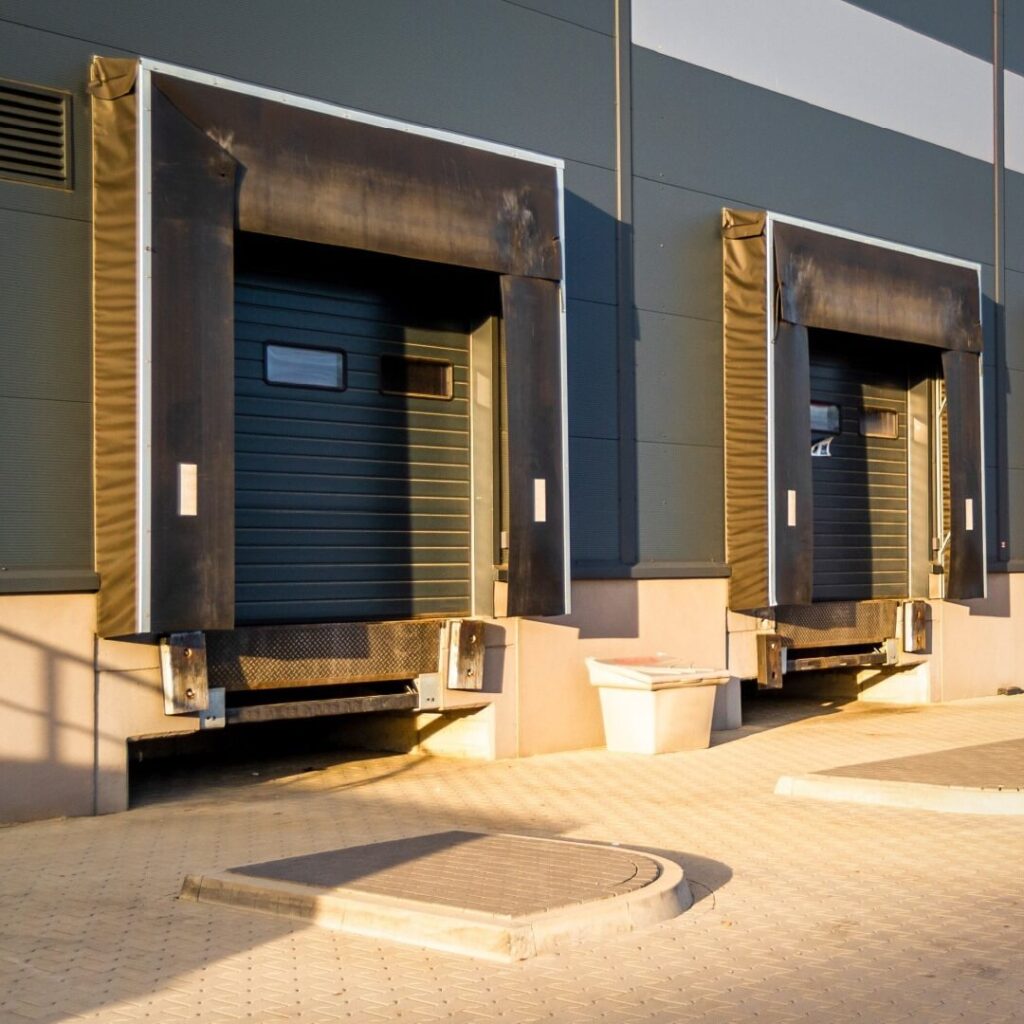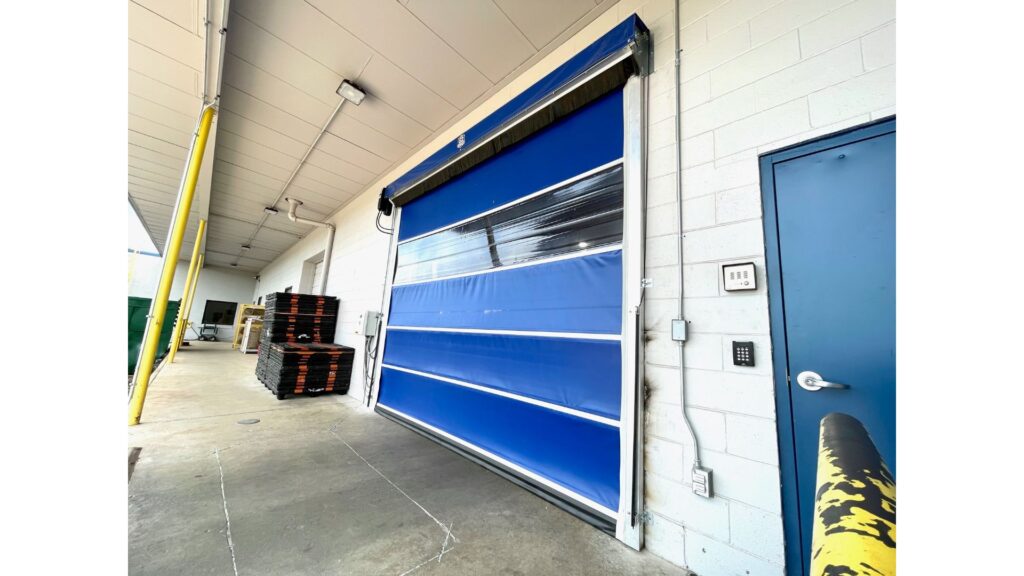Commercial door hinges can be easy to overlook when it comes to running a business. Whether you’re a seasoned business owner looking to upgrade your doors or working on your building for your newest business venture, your door hinges are an important part of the security and durability of your building. Choosing the right type of commercial door hinges is important for ensuring safety, security, and functionality for your entry and exit doors.
In this blog post, we will go over a few popular types of commercial door hinges, their maintenance requirements, and how to decide which ones will work best for your business.
Types of Commercial Door Hinges
Depending on the types of doors you want to be installed, how often you’d like to service them, and the kind of security you need, there are a variety of hinge types available. Here are 6 common types of commercial door hinges:
1. Butt Hinges
Butt hinges are the most common type of door hinge used in commercial buildings. They consist of two plates that are attached to the door and the door frame. A pin connects the two plates and allows the door to pivot open and closed. Butt hinges are available in a variety of sizes and materials, such as steel, brass, and stainless steel. The size and material of the butt hinge can affect security and durability.
Butt hinges typically require minimal maintenance and can last for many years with proper care. They need to be regularly lubricated to prevent corrosion and rust. Occasionally tightening the screws in the plates makes sure your door isn’t misaligned and prevents damage to your door. If the hinges are subject to heavy use, however, they may need more regular maintenance.
2. Continuous Hinges or Piano Hinges
Continuous hinges, also known as piano hinges, are long, narrow hinges that run the length of the door and door frame. They are commonly used on heavy doors that need to withstand frequent use. These hinges also come in a variety of sizes and materials for varying degrees of security and durability.
Continuous hinges also have a longer lifespan and can last for quite a few years with proper upkeep. They need to be regularly lubricated to prevent damage and may occasionally need to be tightened.
3. Ball Bearing Hinges
Ball bearing hinges are a type of butt hinge that uses a ball bearing to reduce friction and provide smoother movement. They are also commonly used on heavy doors that need to hold up through frequent use.
Ball bearings do need to be lubricated every once in a while to ensure the bearings are moving and working properly. When kept up well, these hinges hold up well against frequent use and can last for many years.
4. Spring Hinges
Spring hinges use a spring mechanism to automatically close the door after it has been opened. They are commonly found on fire doors, as they help ensure that the door is always closed in the event of a fire. They also work well as a safety measure for areas where a door needs to remain closed.
Because these hinges have more moving parts than the other hinges we’ve mentioned, they need to be lubricated and inspected regularly. This is to ensure that the spring mechanism is working properly, not accumulating rust, and without damage.
5. Strap Hinges
Strap hinges are similar to butt hinges, but they attach to the door and frame by a long metal plate. This long plate provides a better anchor between the hinge and the door and frame. They are commonly installed on garage doors, shed doors, and outdoor gates. They also work well with wooden doors, as they provide more surface area that prevents the wood from splitting.
These hinges are usually designed to be seen and can come in ornate and minimal designs. When used in an outdoor application, strap hinges need to be occasionally inspected for signs of rust and corrosion.
6. Invisible Hinges
Invisible hinges, also known as concealed hinges, are mounted inside the door and door frame to appear invisible when the door is closed. They are most commonly found in sleek, modern doors that require a more upscale look.
There are a few types of invisible hinges for different applications. They can be used on large entry doors, as well as on cabinets and smaller, more lightweight doors.
The Best Commercial Door Hinges for Your Business
Here are a few things to consider when choosing commercial door hinges:
- The size and weight of your door. If you’re installing doors that are particularly heavy or large, you may need to use continuous hinges or sturdy butt hinges that are designed to handle the weight of your door.
- Frequency of use. If your door will need to endure heavy traffic and use, ball-bearing hinges or continuous hinges may ensure smooth operation and durability.
- Required security. Depending on how secure your doors need to be, you may want to consider specialty hinges to suit your needs. Spring hinges can be a good choice for areas that need their doors to remain closed when not in use.
- The aesthetics of your door and building. If your priority is maintaining the look of your business, such as for a storefront or office entry, you may prefer invisible hinges or hinges with more decorative options.
How to Take Care of and Maintain Commercial Door Hinges
Your commercial door hinges will last longer with regular maintenance, and their overall lifespan depends on the type of hinge, frequency of use, and environment the hinge is installed in. Here are some tips that can help your commercial door hinges last longer:
- Regularly lubricate the hinge with a quality lubricant to prevent rust and corrosion on the metal.
- Keep screws and bolts tight to ensure the door stays properly aligned and to prevent damage to your doors.
- Inspect your door hinges occasionally for signs of wear or damage. Get repairs and replacements as necessary.
- Avoid using excessive force or weight on the door. If your door isn’t moving right or gets jammed, call a Commercial Door technician before trying to force it open and closed.
- Keep your hinges clean and free of any debris or dirt. These can cause damage to the door hinge and interfere with its motion.
In general, door hinges can last for years when properly maintained. Butt hinges, continuous hinges, and ball-bearing hinges tend to have longer lifespans than other hinges. Spring hinges and strap hinges may not last as long as the other types of hinges, but they do have key perks when it comes to safety and style.
Conclusion
Choosing the right type of commercial door hinges for your business is an important part of ensuring your doors are safe, durable, and functional. Regularly maintaining them keeps your hinges in working order for longer.
If you’re still not sure what kind of commercial door hinges are best for your business, reach out to our expert team at Commercial Door for help! We’re happy to answer any questions you may have and help you make the right choice. We repair, install, and maintain commercial doors in Norman, Tulsa, and Oklahoma City. View all of our services, learn more about us, and get a free estimate on your next commercial door project!





